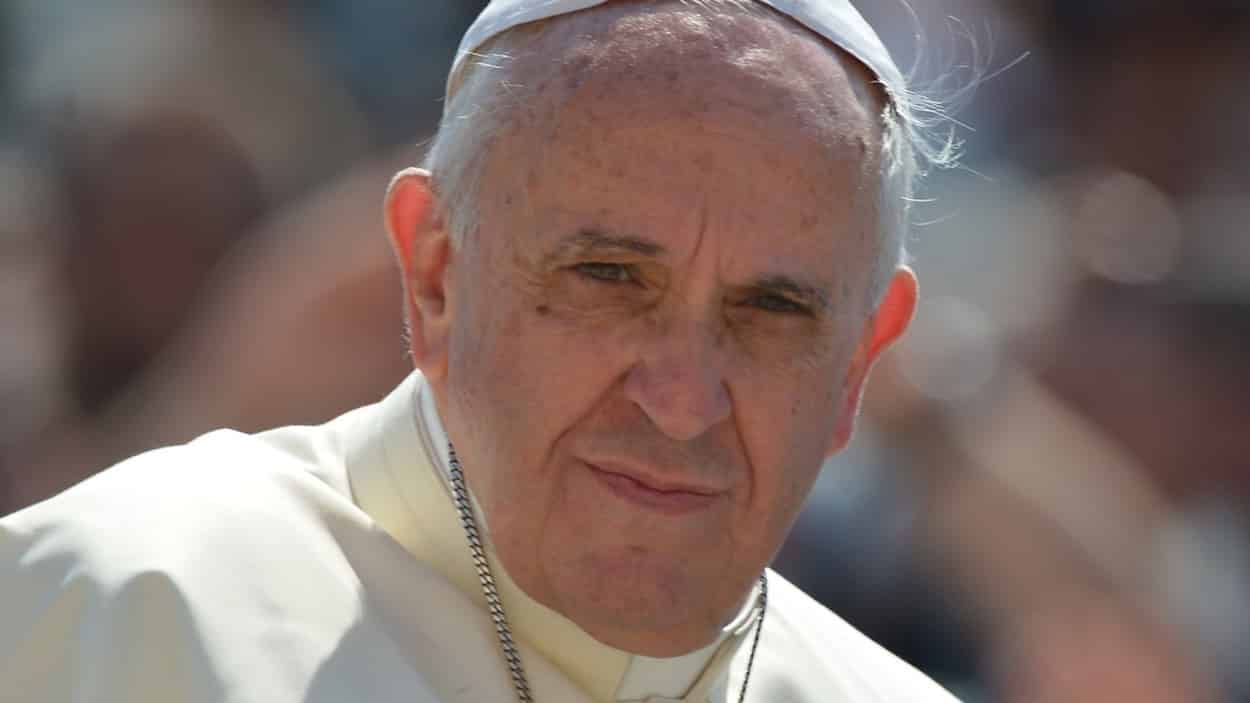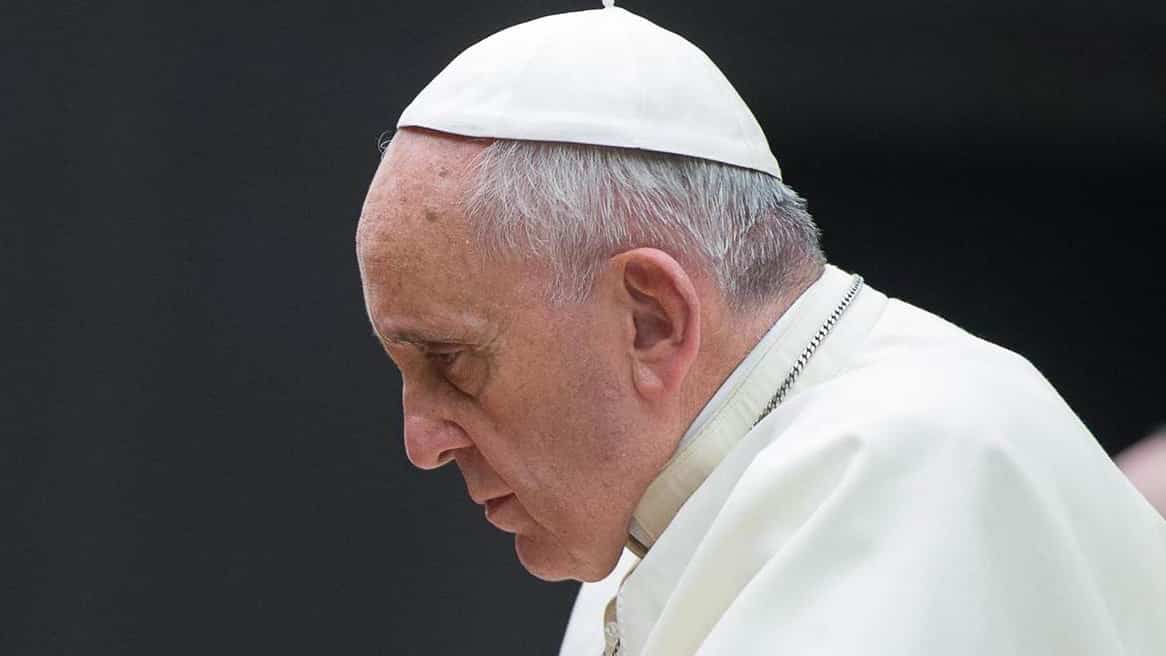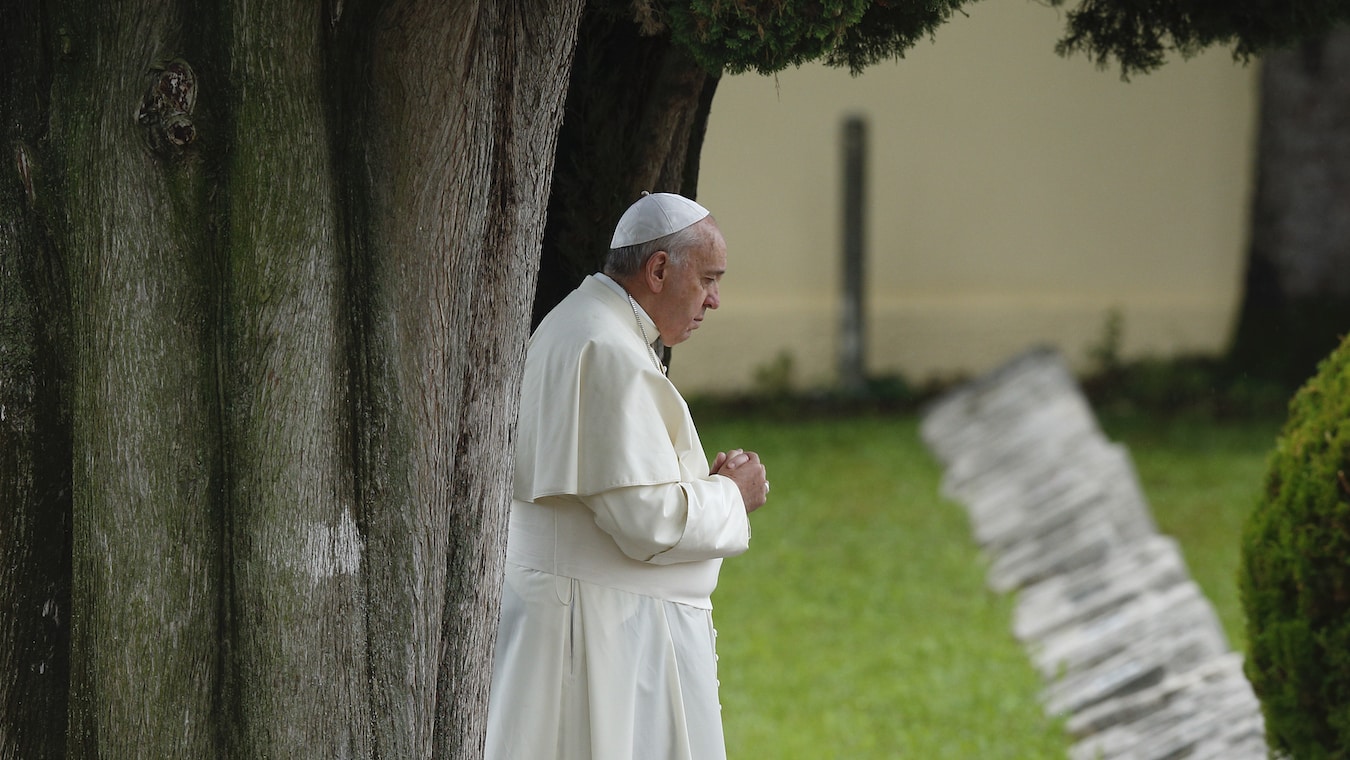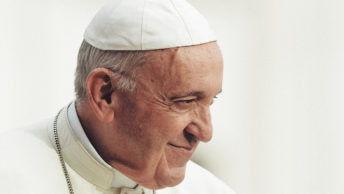Almost immediately after my essay “Pope Francis’ Support of Protests” was published, I received four interesting comments:
Arthur began by quoting a line from the essay, then added his comment: “’Furthermore, no fair-minded person would doubt his good intentions in doing so.’ [I] stopped reading right there.”
John wrote: “I’m with you, Arthur. If Francis has good intentions, then so did Judas. PF is obviously using “youth,” and in particular, leftist, radicalized youth, to grease the skids and provide a front for his own destructive agenda. May he fail miserably.”
David wrote: “I am so tired of the Communist Pope Francis rants. Everything is about power struggle. Does he ever talk about Jesus and Mary?”
Andrew wrote: “[The Pope’s] care is with the natural, not the supernatural; more of a politician concerned about earthly affairs, than a shepherd worried about heavenly affairs.”
These reactions surprised me, especially the one by Arthur who stopped reading when he saw the line about Francis’ intentions, and presumably has no idea of what I said in the essay. I would not have been surprised by the opposite reaction: “Spare the Holy Father your negative criticism, Ruggiero. Show some respect” (even though I was respectful of him), because that attitude used to be instilled in Catholics. It can, of course, impede thoughtful analysis, but on the positive side it shows respect for the man and the office, and no matter how much we may disagree with people, we should at least be willing to give them the benefit of the doubt concerning their intentions. That was the traditional view, and it was based on simple fairness.
After reading the four comments, I wondered how many people share the view they expressed. So I consulted the polls. Recently, the Pew organization compared Pope Francis’ 2018 poll numbers in the U.S. with his 2015 numbers. He is now judged “too liberal” by 34% compared to 19% then; “naïve” by 24% now compared to 15% then; doing an “excellent or good” job spreading the Catholic faith 70% now compared to 84% then; and supporting traditional morals 70% now compared to 80% then. (His numbers for compassion and humility have not changed at all; they remain 94% and 91% respectively.)
The reactions of people to changes in the Catholic Church, of course, run the gamut from perfectly understandable to downright strange. It was ever thus.
Many years ago, for example, I had a friend who had fought in WWII and returned home to attend New York’s St. John’s University. While in college, he was active in a campus organization called Convert Makers of America. As the name implies, members would approach perfect strangers in various places, including on the street, and encourage them to join the Catholic Church.
By the late 1960s, when we were professors together, his relationship with Catholicism had changed dramatically. He no longer had anything to do with the Church, claiming to be an agnostic. Yet when accounts of Vatican II filled the newspapers, he loudly lamented the changes in the Church, particularly liturgical ones. I asked him why the changes bothered him given that he was no longer a practicing Catholic and in fact hadn’t set foot in a church for many years. He explained that he wanted the Church to remain the way he remembered it from his youth. Puzzled, I asked him why he wished that. He didn’t answer, and I was left thinking that in some strange way the changes made nostalgia less enjoyable to him.
In contrast to my friend, the four readers quoted above are not just saddened by changes in the Church but angry about them. Are their feelings justified? Of course, the Pew statistics show they are in the minority but that doesn’t prove that their view is wrong. They may be better informed than those in the majority. (It is not frivolous to wonder about who is informed and who isn’t. Today, many people of both sides of most issues seem to base their judgments on little more than what they have heard in biased newscasts or read on Facebook.)
In point of fact, a number of respected individuals share the minority view; for example, Catholic scholar Philip F. Lawler and Catholic convert and journalist Ross Douthat. Lawler is the author of Lost Shepherd: How Pope Francis Is Misleading His Flock, which has been praised by a number of other scholars, including Robert Royal, Karl Keating, and James Hitchcock. Ross Douthat is the author of To Change the Church: Pope Francis and the Future of Catholicism. (Both were published in 2018.)
Judging others, of course, can over time prove more embarrassing to the judge than to the judged. The early labeling of Thomas of Aquinas as “the Dumb Ox”comes to mind. Today that ox is remembered as Saint Thomas Aquinas and is regarded as one of the greatest thinkers in Christian history.
Judgment has become especially difficult in this age because feeling has displaced thought and overstatement is valued more than balanced and fair assessment. It is no longer enough to examine an idea and point out its strengths and weaknesses—we are also driven to exalt or vilify the person who holds it. And if we disagree with the person, it is considered appropriate to question his intentions as well. The result is a lack of what I call intellectual generosity—that is, a willingness to acknowledge that even people we strongly disagree with may have some insights that we lack, and who deserve to be acknowledged for having them even if that entails being a little more humble about our own views.
Catholics have a special reason for practicing intellectual generosity toward priests, bishops, cardinals, the Pope, and one another–they are supposed to follow the example of Christ. That in no way means that they should avoid thinking critically about statements concerning their religion. They should continue to ask the hard questions about all theological views, their own as well as other people’s, including the following ones:
Is it possible that many criticisms of Francis come more from dislike of his verbal “style” than from flaws in his ideas? (I find fascinating the similarity of some criticisms of Pope Francis to those of President Trump and wonder how to interpret that similarity.) If Francis is a raging liberal, as many opponents imply, how should we understand his punishments by the Jesuit order for opposing its liberal social justice and liberation theology agendas? (He was removed from the position of rector of the Philosophical and Theological Faculty of San Miguel in 1986, then in 1992 told he was no longer welcome as a resident in Jesuit houses.) Why do many of his critics excoriate him for even hinting that divorced and remarried Catholics should be allowed to receive Communion, yet express little concern over the “express annulment” phenomenon, in some cases even applauding it? Why do they demand that Catholic teaching on divorce and remarriage be strictly enforced, while saying nothing similar about contraception? (Do they, perhaps, believe that the reason for Catholic couples having only one or two children is the efficacy of the Rhythm Method?)
To those questions I would add the most difficult question of all: Is the Holy Spirit guiding the Pontiff in ways that will surprise both his supporters and his detractors?
To be continued . . . .
Copyright © 2018 by Vincent Ryan Ruggiero. All rights reserved









This article is confusing, just as the Pope is confusing.. He has only one ‘job’, to lead all souls to Heaven – and I would fire him if I could, for he is failing his job.
I agree with Shirley. Cardinal Sarah would have made a wonderful Pope. He is truly a good and holy shepard to the people.
There is no doubt that PF has leftist political beliefs as do most US Bishops. I myself find his politics abhorrent but find many non-Catholics and very liberal people who love PF and very much disliked PB.
The three ministries of a priest are philosopher, theologian and pastoral. The Holy Spirit has given us three Popes who have expressed these three pillars well. Pope JP 2 was a philosopher, Pope Emeritus is a theologian and now Pope Francis is the pastor. What a great gift that we have these three Popes.